REA'S InteractiveFlashcardsNCLEX-PNNational Council Licensure Examination for Practical NursesRebekah Warner, RN, BSN Research & Education Association
Research & Education Association
Visit our website at
www.rea.com The information contained herein presents scenarios and other narrative consistent with targeted preparation for the NCLEX-PN Exam. The book's contents are deemed to be accurate and relevant to the cited subject matter at the time of publication. Neither the publisher, Research & Education Association, Inc., northe author(s) is engaged in nor shall be construed as offering legal, nursing or medical advice or assistance or a plan of care. If legal, nursing or medical assistance is required, the services of a competent professional person should be sought. NCLEX-PN is a registered trademark of the National Council of State Boards of Nursing, Inc. Research & Education Association
61 Ethel Road West
Piscataway, New Jersey 08854
E-mail: REA's Interactive FlashcardsBookfor the NCLEX-PN(National CouncilLicensure Examination for Practical Nurses)Published 2012 Copyright 2008 by Research & Education Association, Inc.
All rights reserved. No part of this book may be reproduced in any form without permission of the publisher. Printed in the United States of America Library of Congress Control Number 2007903242 ISBN-13: 978-0-7386-0211-0
ISBN-10: 0-7386-0211-6
 | INTERACTIVE FLASHCARDS and REA are registered trademarks of Research & Education Association, Inc. |
REA's Interactive FlashcardsWhat they're for...
How to use them... They come in a book, not in a box of hundreds of loose cards. They are most useful as test time approaches to help you check your test readiness. They are a good tool for self-study and also for group study. They can even be used as a competitive game to see who scores best.
They work with any text. The interactive feature is a unique learning tool. With it, you can write in your own answer to each question which you can then check against the correct answer provided on the flip side of each card. You will find that the flashcards in a book have several advantages over flashcards in a box. You dont have to cope with hundreds of loose cards. Whenever you want to study, you dont have to decide beforehand which cards you are likely to need; you don't have to pull them out of a box (and later return them in their proper place).
You can just open the book and get going without ado. A very detailed index will guide you to whatever topics you want to cover. You can take along REA's flashcard book anywhere, ready for use when you are. You don't need to tote along the box or a bunch of loose cards. REA's Flashcard books have been carefully put together with REA's customary concern for quality. Larry B. Larry B.
Kling
Chief Editor P.S. As you could tell, you could see all the flashcards in the book while you were in the store; they aren't sealed in shrink-wrap. About Research & Education Association Founded in 1959, Research & Education Association (REA) is dedicated to publishing the finest and most effective educational materialsincluding software, study guides, and test prepsfor students in middle school, high school, college, graduate school, and beyond. REA's test preparation series includes books and software for all academic levels in almost all disciplines. REA publishes test preps for students who have not yet entered high school, as well as high school students preparing to enter college. Students at every level, in every field, with every ambition can find what they are looking for among REA's publications.
REA's series presents tests that accurately depict the official exams in both degree of difficulty and types of questions. REA's publications and educational materials are highly regarded and continually receive an unprecedented amount of praise from professionals, instructors, librarians, parents, and students. Our authors are as diverse as the subject matter represented in the books we publish. They are well known in their respective disciplines and serve on the faculties of prestigious colleges and universities throughout the United States and Canada. Today REA's wide-ranging catalog is a leading resource for teachers, students, and professionals. Acknowledgments We would like to thank Larry B. Acknowledgments We would like to thank Larry B.
Kling, Vice President, Editorial, for his overall direction; Pam Weston, Vice President, Publishing, for setting the quality standards for production integrity and managing the publication to completion; Diane Goldschmidt, Senior Editor, for project management and preflight editorial review; Christine Saul, Senior Graphic Designer, for designing our cover; and Aquent Publishing Services for typesetting the manuscript. About the AuthorRebekah Warner is a Registered Nurse (RN) with a Baccalaureate of Science in Nursing (BSN) degree. Upon graduation from the nursing program at Roberts Wesleyan College in Rochester, N.Y., in May 2004, Rebekah and her husband, Robert, moved to central Florida. There, she accepted her first position as an RN in the medical cardiology department of a large local hospital. The cardiology department is considered a critical care floor that consists of a primary population of clients with chronic or acute conditions of the heart. Rebekah's next position found her at a smaller community hospital in the area, where she is currently employed on the Progressive Care Unit (PCU).
The PCU is designed for the care of clients suffering from various critical conditions that are stable enough to be cared for outside of the Intensive Care Unit (ICU). While in nursing school, Rebekah was inducted into Delta Sigma Tai, the honor society for nurses. She became a member of the American Association of Critical Care Nurses (AACN) in 2005. She is also currently certified in Basic Life Support (BLS), Advanced Cardiac Life Support (ACLS), and Cardio-Pulmonary Resuscitation (CPR). Aside from this work, Rebekah has written review notes for basic college chemistry to be used for students who are preparing to take the College-Level Examination Program's (CLEP) Chemistry examination. Contents Questions Elderly Mr.
Thomas comes into the Urgent Care Clinic. He states, I tripped and fell down the stairs in my house. When the doctor visits the patient, the LPN/LVN describes the injury as exhibiting pain with movement, swollen, and ecchymotic. When Mr. Thomas asks what ecchymotic means, the best response from the nurse would be: (A) fractured (B) blanched (C) edematous (D) bruised Your Answer

 The LPN/LVN observes a nursing assistant applying a client's antiembolism stockings. (B) The nursing assistant is applying the stockings just before assisting the patient out of bed in the morning. (C) The nursing assistant is applying the stockings at night as the patient is getting ready to go to sleep. (D) The nursing assistant is applying the stockings after observing the color and temperature of the skin. Your Answer
The LPN/LVN observes a nursing assistant applying a client's antiembolism stockings. (B) The nursing assistant is applying the stockings just before assisting the patient out of bed in the morning. (C) The nursing assistant is applying the stockings at night as the patient is getting ready to go to sleep. (D) The nursing assistant is applying the stockings after observing the color and temperature of the skin. Your Answer


Next page


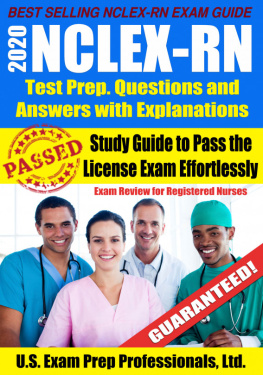
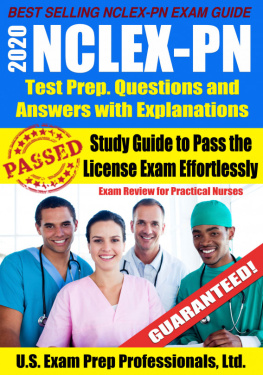
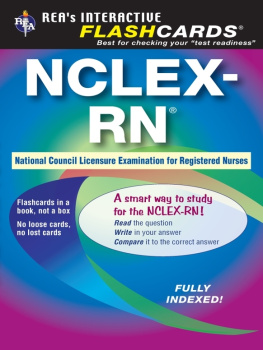
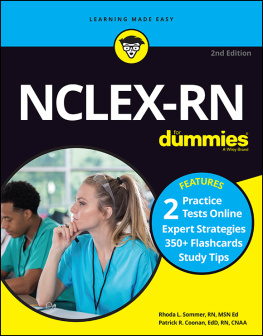

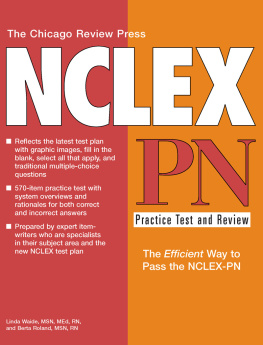
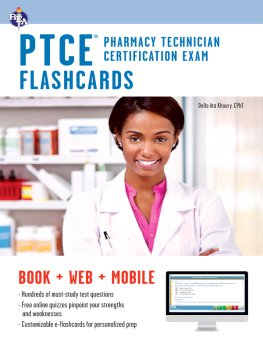
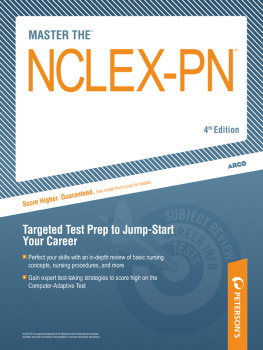
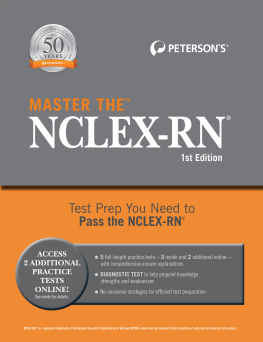
 Research & Education Association
Research & Education Association
